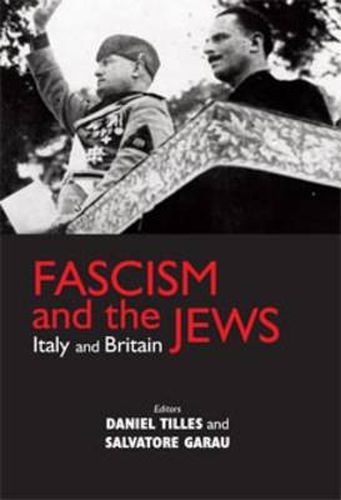Readings Newsletter
Become a Readings Member to make your shopping experience even easier.
Sign in or sign up for free!
You’re not far away from qualifying for FREE standard shipping within Australia
You’ve qualified for FREE standard shipping within Australia
The cart is loading…






Interwar European fascism is inextricably associated with anti-semitism - and, in particular, the destructive racial ideology and policies of the Nazis. Certainly, as the period progressed, anti-semitism did become an increasingly integral ideological component for European fascist movements, with Italy and Britain as distinctive examples of this phenomenon. But the main fascist parties in both countries were founded with no anti-Jewish agenda, before progressively incorporating anti-semitism as official policy. Moving away from the standard Nazi paradigm, this book explores the factors behind fascism’s adoption and use of anti-semitism, the varying forms that it took, and the ways in which it evolved. Similarly, the exploration of the Jewish relationship with fascism has been dominated by German, Nazi, and Holocaust history. Yet Jews undertook a far wider range of interactions with this political creed, ranging from membership of fascist organizations to influential involvement in anti-fascist movements. Through comparative examination of the Jewish communities in interwar Britain and Italy, this book unravels some of the complexities of Jewish attitudes towards, and experiences of, fascism.
$9.00 standard shipping within Australia
FREE standard shipping within Australia for orders over $100.00
Express & International shipping calculated at checkout
Interwar European fascism is inextricably associated with anti-semitism - and, in particular, the destructive racial ideology and policies of the Nazis. Certainly, as the period progressed, anti-semitism did become an increasingly integral ideological component for European fascist movements, with Italy and Britain as distinctive examples of this phenomenon. But the main fascist parties in both countries were founded with no anti-Jewish agenda, before progressively incorporating anti-semitism as official policy. Moving away from the standard Nazi paradigm, this book explores the factors behind fascism’s adoption and use of anti-semitism, the varying forms that it took, and the ways in which it evolved. Similarly, the exploration of the Jewish relationship with fascism has been dominated by German, Nazi, and Holocaust history. Yet Jews undertook a far wider range of interactions with this political creed, ranging from membership of fascist organizations to influential involvement in anti-fascist movements. Through comparative examination of the Jewish communities in interwar Britain and Italy, this book unravels some of the complexities of Jewish attitudes towards, and experiences of, fascism.